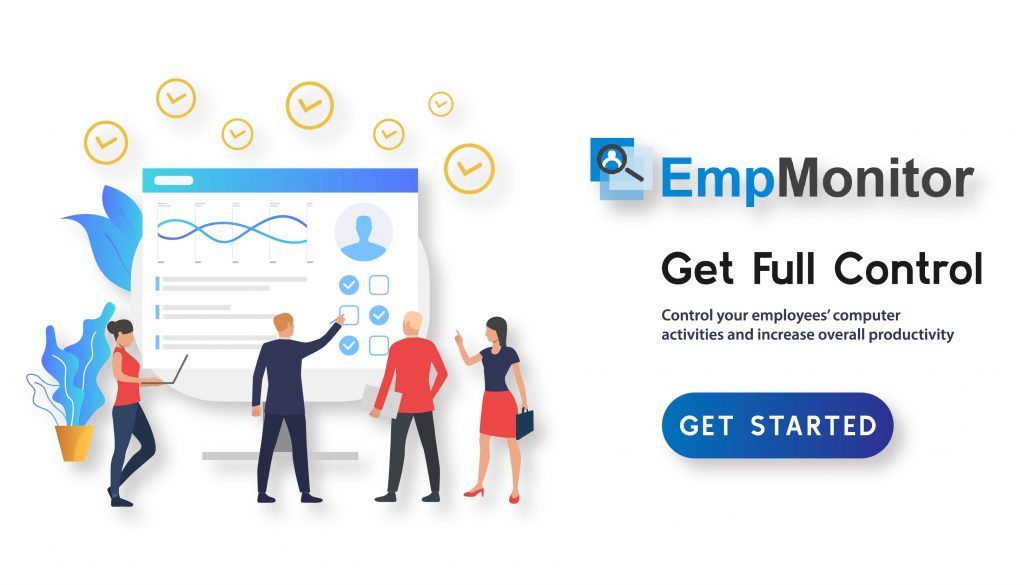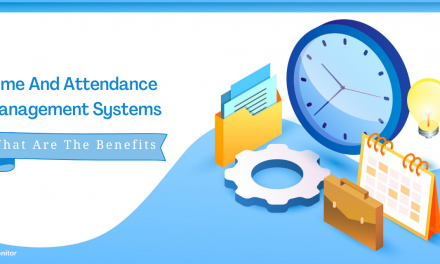Leading a team goes beyond task delegation and deadline setting. It involves creating a harmonious unit where individuals flourish, contributing to the collective success. The key lies in effective people management skills.
It helps to cultivate trust, motivation, and bring overall success. Whether through engaging communication or constructive feedback for personal growth, we aim to unravel the mysteries of unlocking your team’s complete potential.
Say goodbye to micromanagement and welcome a leadership approach that inspires, empowers, and ultimately delivers results. So, let’s gear up for a transformative journey towards outstanding teamwork.
Before going through the essential skills of a good employer for employee management, let us understand them first.
In a hurry? Listen to the blog instead!
What Are People Management Skills?
People management skills are the abilities that managers use to make their team do better in things like getting work done and feeling happy about their jobs.
These skills are instrumental in facilitating effective one-on-one conversations with team members and ensuring the team remains focused during high-pressure situations.
Team management skills are like superpowers for working with others. They help to motivate your team, unlock their talents, and build trust so everyone can achieve their best.
It includes clear communication, fair feedback, and a sprinkle of support. These skills are about making work a place where people feel good and do amazing things together.
But is it necessary for managers to have proper people management skills?
Yes, it is indeed vital for managers to have good employee management skills. Let us know why.
Why Is It Important To Have Good People Management Skills?
Here, we will learn about a few of the many benefits of managers having proper management skills.
They are:
Increased Productivity & Favorable Customer Outcomes:
It is directly influenced by management styles, rivaling the impact of research and development expenditures. Therefore, allocating resources to develop team management skills can yield significant returns by improving productivity and enhancing customer outcomes.
Enhanced Employee Relationships:
Improved employee relationships stem from people skills such as effective communication, trust-building, and emotional intelligence. These skills play a crucial role in fostering positive manager-employee relations and strengthening connections among team members.
When managers demonstrate positive examples, their coworkers are likely to emulate them. Teams with managers who have good people management skills usually trust each other more, work well together, and help each other out.
Decrease In Turnover Of Employees:
Research indicates that approximately 50% of employees leave their jobs due to inadequate management, but implementing workplace enhancements, such as improved communication and growth prospects, can reduce this turnover rate.
Utilizing people skills like emotional intelligence and building trust allows you to identify the specific improvements that boost employee satisfaction and decrease turnover.
Now that we have understood the importance of good workforce management skills, let’s learn about the seven skills that are vital for managers.
Crucial People Management Skills That Every Manager Must Have:
For the success of any organization, effective people management is crucial. Managers play a key role in leading and inspiring their teams.
Here are seven essential people management skills for managers:
Communication Skills:
Effective management skills prominently feature communication and listening, serving as the cornerstone for various soft skills pivotal in fostering collaboration, motivating staff, and resolving conflicts.
Successful communication involves being concise, specific, engaging, and adaptable, considering factors like channel, timing, and tone. Listening is equally crucial, requiring an attentive understanding of team members’ intentions and challenges.
These skills are particularly valuable in facilitating top-down and bottom-up communications, welcoming new team members, handling difficult conversations such as declining time-off requests, and providing constructive feedback and career advice.
Leadership Skills:
Leadership, which is a vital part of people management skills, helps in guiding a team to success. A good manager shows leadership by being positive and encouraging team members to do their best.
Leading by example, they cultivate a favorable work environment, adapting their approach to accommodate diverse situations and team dynamics. Leadership in people management involves inspiring others, fostering a collaborative culture, and crafting strategies to maximize each individual’s potential.
Empathetic Skills:
Empathetic skills play a pivotal role in effective people management. Central to this is emotional intelligence, promoting emotional well-being and heightened productivity for both you and your team.
The awareness of emotions, both yours and others, allows for composure in stressful situations and the provision of space or support during moments of distress. Cultivating empathy and vulnerability creates a positive work environment, fostering encouragement and inspiration.
To enhance empathetic skills, consider proposing informal team chats to address low moods, understanding issues, and implementing solutions like organizing yoga sessions for team mental health.
Time Management Skills:
Proficient time management, a vital facet of people management skills for managers and their teams, is highly important. In executing effective leadership, managers must judiciously prioritize tasks, establish achievable deadlines, and optimize resource allocation.
This adept handling of time is indispensable for sustaining team productivity and attaining organizational objectives. Furthermore, the integration of time management software like EmpMonitor facilitates streamlined processes, aiding managers in tracking tasks, monitoring progress, and ensuring optimal utilization of resources.
Managers contribute greatly to the overall efficiency and success of their teams and the organization by honing this essential skill. To efficiently manage workloads, managers must have time management skills.
Using time management software like EmpMonitor can assist you greatly.
Let us learn about the ways it can become your trusted assistant in the process of time management.
EmpMonitor- The Ultimate Time And Employee Management Software
EmpMonitor, a valuable tool for people management, vastly aids in time and employee management. It is the best time tracking software for employees. With its user-friendly interface, it allows managers to effortlessly monitor work hours, track tasks and time, and ensure optimal productivity. With its employee management tools, team leaders can manage their teams easily.
This tool enables easy identification of productive patterns and areas for improvement, fostering a balanced and efficient work environment.
There are various valuable features of this software for managers. Some of them are:
- Time Tracking: EmpMonitor accurately records the time spent by employees on various tasks, projects, or applications. It helps employers understand how time is utilized during work hours, aiding in project management and resource allocation.
- Activity Monitoring: This feature keeps track of employees’ computer activities, including which applications are being used, websites visited, and the time spent on each task. It provides insights into employees’ work habits and identifies potential areas of improvement or concerns.
- Website Blocking: Employers can restrict access to specific websites deemed non-work-related or potentially harmful, thus minimizing distractions and enhancing employee focus on work-related tasks.
- Screenshots: Periodic screenshots capture employees’ desktop activities, providing visual evidence of their work progress or potential misuse of company resources. This feature aids in accountability and ensures employees remain focused on assigned tasks.
- Productivity Analysis: By analyzing employee activity data, EmpMonitor offers insights into productivity trends and helps employers identify areas where workflow optimization or additional support may be needed.
- Remote Access: With remote access capabilities, employers can monitor employees’ activities even when they are working from home or in different locations. This feature ensures consistent monitoring and oversight regardless of physical distance.
- Data Security: EmpMonitor helps protect sensitive company information by monitoring for any unauthorized access attempts or potential data breaches. It enhances data security by providing alerts and notifications for suspicious activities.
- Reporting and Analytics: Detailed reports and analytics generated by EmpMonitor offer valuable information for managerial review and decision-making. These insights help optimize workflows, improve productivity, and ensure compliance with company policies and regulations.
EmpMonitor serves as an invaluable asset in streamlining time-related processes, ultimately contributing to enhanced time management and employee management, leading to organizational success.It is the best software for managers with beneficial workforce management tools.
Now that we have learned about the effectiveness of EmpMonitor- let us continue with our blog.
Problem-Solving Skills:
Managers face diverse challenges, from addressing skill gaps to boosting employee engagement. Effective problem-solving demands a goal-oriented mindset and a practical approach considering available resources.
Problem-solving frameworks like the five whys and mutually exclusive collectively exhaustive (MECE) approach are methods to help address issues efficiently and effectively.
Five Whys: This method means asking “why” many times to find out why a problem happens. By doing this, you can understand the main reason for the problem. It helps to solve the real issue, not just the symptoms.
Mutually Exclusive Collectively Exhaustive (MECE) Approach: This method means sorting things so they don’t overlap and all options are included. The aim is to make clear groups that cover everything. It helps to analyze or solve problems efficiently by organizing information neatly.
Both of these frameworks provide structured approaches to problem-solving, helping individuals or teams to systematically identify, analyze, and address issues in a logical and thorough manner.
The 80/20 rule, or the Pareto Principle, suggests that 80% of outcomes are generated by 20% of efforts. Applied to the workplace, it implies that a minority—typically comprising floor leaders, managers, or other key individuals—contribute significantly to the majority of work completed within an organization.
The rule advocates focusing on crucial factors for optimal results. Applying such methodologies with adept people management skills enhances the resolution of problems efficiently.
Also Read:
Importance Of Employee Management System | Benefits And Types Covered
07 Most Important Management Skills No One Talks About
Why You Must Have Time Management Skills in 2022
Conflict Resolution Skills:
Conflicts are unavoidable at work, so managers need effective conflict-resolution skills. Start by listening to and acknowledging each party’s perspective. Understand their desired outcomes and the reasons behind them.
Foster mutual respect and promote emotionally balanced conversations. Finally, identify a solution that benefits the work environment and addresses the parties’ needs.
For instance, if two team members disagree on a task, speak with each other individually, summarize their points, and facilitate a compromise in a moderated conversation. It will benefit both the employees and the company as well.
Delegation Skills:
Delegation fosters team accountability and efficient resource use. It prevents task overload for some employees while restricting others with available time. Prioritize task assignments based on skills for optimal completion.
While the urge to micromanage tasks is common, it often elevates team stress. Instead, employ people management skills by offering clear task instructions and specifying deadlines and KPI expectations.
Maintain an “open door policy” for questions and concerns and address unmet expectations by seeking solutions, such as redistributing tasks among coworkers.
Now that you’ve familiarized yourself with the seven effective people management skills, you likely have a clearer perspective on the subject. These skills are essential for enhancing your proficiency in workforce management.
Conclusion:
Having strong people management skills, like good communication, flexibility, and trust-building, is really important for making your team work better and making sure they’re happy with their jobs.
If you don’t focus on these skills, it could lead to problems like more employees leaving. But the good news is, you can improve these skills over time by focusing on certain areas at a time.
An employee management system, such as EmpMonitor, simplifies the development of people management skills. As a result of features such as the ability to track hours worked and tasks accomplished, the tool ensures optimal productivity, aiding you in improving your overall skills of managing people step-by-step.



















